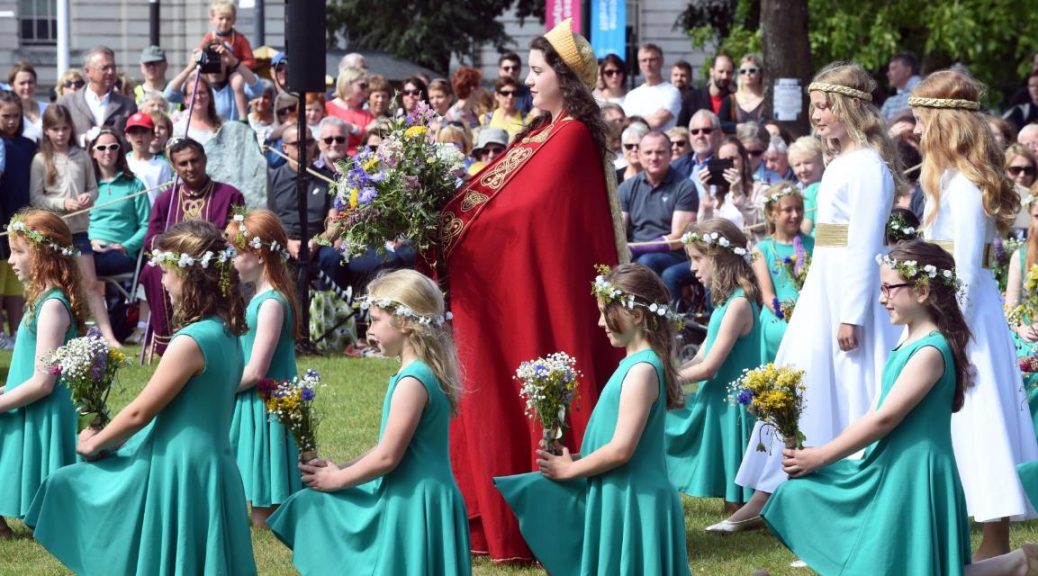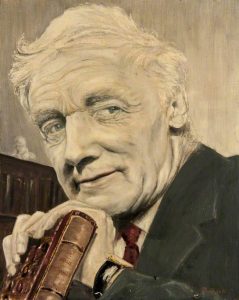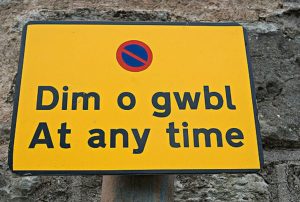
The Whole Welsh Works of Winston
Welsh Rarebits
It was supposedly Blaise Pascal (not Winston Churchill) who said he was going to give a long speech because he hadn’t the time to prepare a short one. I have an idea for a short speech that will take no time at all: The Whole Welsh Works of Winston.
I was actually going to use this as an intro to a longer talk at Hillsdale College later this month. We decided it was too obscure to matter to most listeners. It might even bore them, except for any Welsh in the audience. (Who would certainly deplore my pronunciation.)
For the record though, I offer herewith the complete Welsh Works of Sir Winston Churchill—at least those known to me.
Chapter 1
Trechu’r Goresgynnydd is the Welsh version of Beating the Invader, Cohen B76. Bibliographer Ronald Cohen advises that it is Churchill’s only Welsh printed work. The Ministry of Information published it in May 1941. Mr. Cohen knows of only a single copy. The press run, however, was 160,400. This version is not in the Cohen Collection at Hillsdale College.
Chapter 2

Churchill had a prominent Welsh challenger, the socialist MP Emrys Hughes, who wrote a spurious biography of him. In it Hughes took the liberty of badly misquoting him to suggest he hated Germans. Nevertheless, Churchill and Hughes nursed a secret mutual affection, which they tried to keep well hidden as they sparred in Parliament.
In November 1951, just re-elected Prime Minister, Churchill appointed the Welshman David Llewellyn as Undersecretary for Welsh Affairs in the Home Office. “His name,” Churchill told the House of Commons, “is quite well known throughout the principality.”
Emrys Hughes leaped from his seat to demand: “Pronounce it.”
“I will,” said Churchill—“Llewellyn.” Then he stunned the House of Commons by adding “Môr o gân yw Cymru i gyd.” [All Wales is a sea of song.] It was a phrase Churchill learned while attending an Eisteddfod, a Welsh festival, thirty years before with his friend, David Lloyd George. (His photographic memory never slipped.)
 Chapter 3
Chapter 3
A few days later, Churchill spoke on the forthcoming budget proposed by the new Government.
Mr. Hughes rose. “Owing to the popularity the Government has gained by the reduction of their salaries, is not the Prime Minister prepared to apply the principle to the big item of more than £500,000 spent on the Civil List?” (The Civil List is an itemization of funds paid to individuals by the government.)
Churchill did not hesitate. “Dim o gwbl,” he replied. It means “At any time.” Which was a nice Welsh way of saying “I’m really not going to tell you anything.”
Thus endeth Sir Winston Churchill’s complete works in Welsh. Any additional discoveries are most welcome. Which is to say: Mae croeso mawr i unrhyw ddarganfyddiadau ychwanegol.







One thought on “The Whole Welsh Works of Winston”
I only know a little Welsh (I do know Scottish Gaelic and can read Irish Gaelic) but I do know that Welsh song is very beautiful and I have numerous recordings of Welsh. Mairi Macinnes the great Highland singer has recorded “This Feeling Inside” in English, Gaelic and Welsh three of the native languages of the Isles. I always remember my grandfather, who was from the North ( a Highlander) that the Welsh were the true Britons and that King Arthur was not English but a Briton (and his enemy was the English!!!).
I heard recently a recording of Anthem from Chess in Welsh. “Môr o gân yw Cymru i gyd” is a quote, I recall that Andrew Roberts has in his most recent biography; Cymru I know is Wales or Cambria. Mor is Sea like the Spanish “Mar” or Gaelic “Muir” “Gan” (song) reminds me of Gairm (call or shout). But Gaelic is Q-Celtic (a Western dialect) and Welsh is P-Celtic which was an Eastern dialect like Gaulish or Galatian. So despite having a common ancestor, Welsh is quite removed from Scottish or Irish Gaelic which curiously are closer to Latin, Spanish or Punjabi that they are to English! Welsh is phonetic along its own lines:
(This is English spelling in the Welsh style)
so “Yw” is pronounced like “you”. yw Cymru (is Wales) It’s grammar is very formidable and unlike Gaelic or Spanish (which have a lot of Latin cognates) Welsh uses native terms the way German does. So I think it is the most difficult of the Celtic languages. Here is a little fun quote I found:
Ai hop ddat yw can ryd ddys and ddat yt meiks sens tw yw. Iff yw can ryd ddys, dden yw sawnd ryt and ar redi tw gow hycing in wals widd gofforawalc dot cwm. Gwd lwc and Haf ffyn.
Should have sounded thus:
I hope that you can read this, and that it makes sense to you. If you can read this, then you sound right and are ready to go hiking in Wales with go4awalk.com. Good luck and have fun. Wonderful Churchill stories thanks!
Comments are closed.